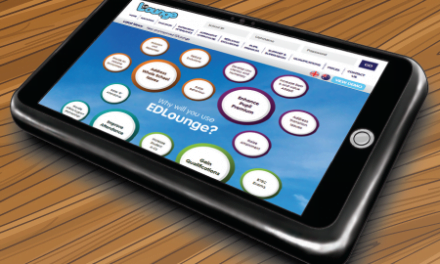The power of parental engagement to positively affect a child’s learning is undeniable. Study after study highlights it as one of the most influential elements on positive student outcomes. Yet parents’ evenings remain a tough nut to crack.
Time constraints, hectic parental schedules, and a natural inclination to expect the worse can all hamper what should be a positive meeting between parent and teacher.
Add to this the rapid-fire circuit that parents must do around a race track of teachers, and ensuring that every last drop of engagement is squeezed out of those 10-minute slots, and you can understand how it is sometimes difficult to get parents to do more than pay lip service to parents’ evenings….if they attend at all.
Here are a few suggestions for boosting parental participation in parents’ evenings.
Lay the groundwork well ahead of time
Expectations…come that pivotal parents’ evening, they matter. Make sure your pupils’ parents know what to expect and ask them to arrive with ideas of their own – this is a basic but solid foundation for a collaborative evening.
Open up the lines of communication ahead of time by sending out a short, sharp and snappy email. Grab their attention by asking for suggestions for the upcoming term – activities that work at home, moans and groans about certain homework tasks, ideas as to what their child enjoys.
You can even set up a simple survey (try using SurveyMonkey or Google Surveys) to make it easier for parents to contribute their comments and suggestions.
Be explicit – provide parents with written feedback and action points
Information overload – when parents must see multiple teachers within such a short space of time it’s an often-unavoidable outcome (to the detriment of their being able to arrive home with clarity as to what has been said, and by whom).
Creating written summaries for each parent not only offers a crystal-clear reminder as to what’s been said, but can also provide a reference for steps forward as to how they can help their child in progressing with their studies.
Don’t ignore parents who are unable (or unwilling) to attend
It can be easy to dismiss parents who couldn’t or chose not to attend your parents’ evening (the evening that you had put SO much preparation into). Yet whether through a lack of importance placed on the evening, or through unavoidable circumstances, there will be some parents who simply can’t make it.
Shed your frustration, shrug off preconceptions as to the why, focus on the one objective fact – proactive engagement with their child’s education is vital for their child’s eventual achievements.
Reach out to these parents to rearrange or to hold their parents’ evening slot over the phone or by email.
Ask them to prepare questions
Remind your parents that you’ll be expecting questions – and provide a list of common, helpful questions that are often asked to provide a little impetus for those who may lack confidence.
By asking parents to engage ahead of time, you are helping parents to understand that a successful parents’ evening is one which involves a two-way conversation and not just a verbal report on a child’s progress.
Be present, listen and make a concerted effort
In every sense, this can be a long road – a strategy that is more of a drip, drip effect, than a rapidly actionable step to parental engagement.
Fully commit to listening and acting on the words and concerns of parents. Be prepared to build rapport over the course of the school year – involving multiple contacts and a collaborative effort.
This may well begin long before parents’ evening, and indeed, for some parents it will be a necessity in order to successfully engage them in any form of dialogue.
Use a variety of media to communicate
Try not to rely on a single medium to engage with parents. Some may respond well to official letters or emails, others will be more accessible via social media, whilst the school’s website (and blog) may be the best way to interact with other parents.
Keep all possible avenues of communication open and, much like many children have different learning styles, understand that parents may have similar preferences.
Whilst parents’ evenings offer a great way to meet and communicate with parents face-to-face, the ideal way to encourage parental engagement with their children’s learning is to communicate regularly during the school year.
If they know you, and understand how you are helping their children to progress, it is more likely that they will become active participants in parents’ evenings.









